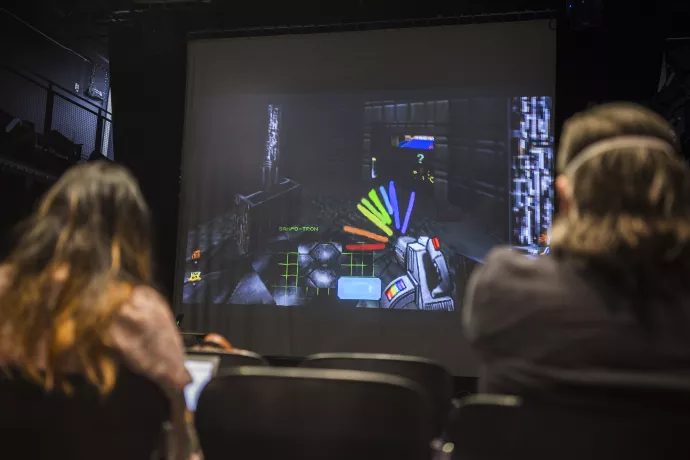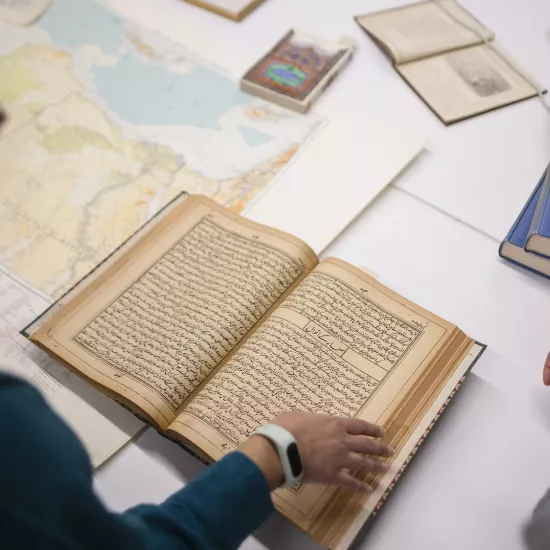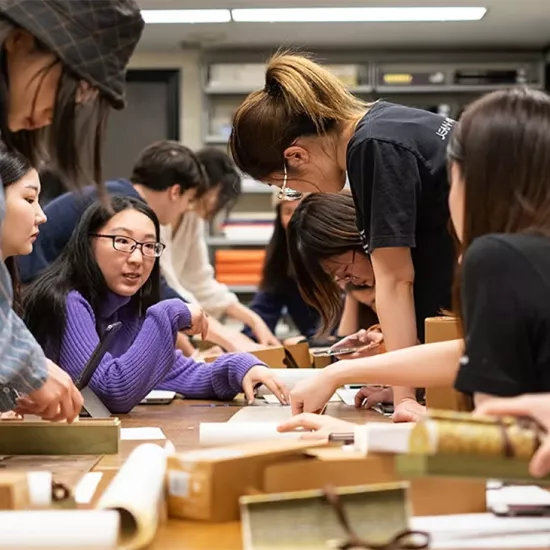Serious Play conference brings game studies scholars to UTM

This August, more than 300 play scholars from all over the world will converge on the University of Toronto Mississauga campus to spend three days digging in to the many-tendrilled world of game studies — the focus of the 18th annual Serious Play Conference. The speakers include leading figures in areas such as game development, the use of games in education and the socio-cultural role of games in a world that increasingly reflects this discipline's choose-your-own adventure ethos.
Several presenters teach at U of T, and Vice-President and Principal Alexandra Gillespie will make opening remarks as well as host a welcome reception for participants.

"Games are uniquely relevant to our moment in history, and it has nothing to do with their economic impact or the popularity of video games," says Serious Play executive director Paul Darvasi, who lectures at OISE on games and learning.
"[It has] more to do with us living in a participatory dynamic culture." Games, he asserts, "are arguably the art form of the 21st century."
A long-time attendee, Darvasi and his business partner Elisa Navaro took over the conference late last year. They decided to bring the conference to the GTA to take advantage of UTM's new Game Studies program, the campus's extensive Syd Bolton video game collection, and the energy emanating from the region's lively game development community.
While the computer game industry dwarfs the music and film sectors combined, the Serious Play participants will be discussing other facets of gaming — in particular, the many ways in which play can be pressed into service to improve education, training and other learning-based activities.
"Play is merely the way that nature incentivizes our species to learn," Darvasi says. "Children learn through play. It's a hyper-motivated way for them to engage in practices that are going to prepare them for participation in society."
But culturally, he adds, games encompass virtually all the other art forms; writing, dance, theater, photography, film, sculpture, painting. Darvasi, who co-owns developer Gold Bug Interactive, describes video games as "this grand opera of human endeavour, and which is weird to think about, because it gets a bad name that's obscuring its more potent cultural value."
Indeed, Lawrence Switzky, an associate professor in the department of English and drama who has been a driving force behind UTM's Games Studies program, uses game development as a way of teaching students about narrative and character, among other themes.
"I just think this conference is a great fit for us," Switzky says. "The largest games and learning conference on the continent belongs at UTM because we have the talent and resources to accommodate it and because we're establishing ourselves as a leader in the field with the Syd Bolton and Electric Playground collections, our Game Studies Minor, and all our programming."

The conference will include sessions on games and history education (with a session on “playing the past” from U of T doctoral candidate Ariana Ellis, who helped organize UTM’s 2023 Day of Play event) along with VR development, cybersecurity and gamification of climate action for K-12 students.
The organizers have divided the conference sessions into six tracks plus workshops:
- Game Development;
- K-12 topics;
- Higher Education;
- Government, NGO & Corporate;
- Healthcare; and
- Culture & Society.
Darvasi points out that Girls Who Game, a Toronto non-profit focused on gender and gaming, will be collaborating on a session on e-sports competitive gaming, which is, he notes, a traditionally toxic environment for women.
"We're really highlighting the positive participation of women in e-sports, and we're going to be demonstrating that."
Unsurprisingly, some of the game development sessions will focus on buzzy technologies like generative AI and large-language models.
But, Darvasi adds, AI has been embedded in gaming from its earliest iterations.
He says some developers are using ChatGPT to build highly complex scenario-based games in which the players participate through prompts to navigate the story. Darvasi expects it's only a matter of time before those games acquire visual elements also generated by algorithmic and user prompts. "That's the next step for sure."
For information on the conference, Aug.12-14 at UTM, visit Serious Play's website.



